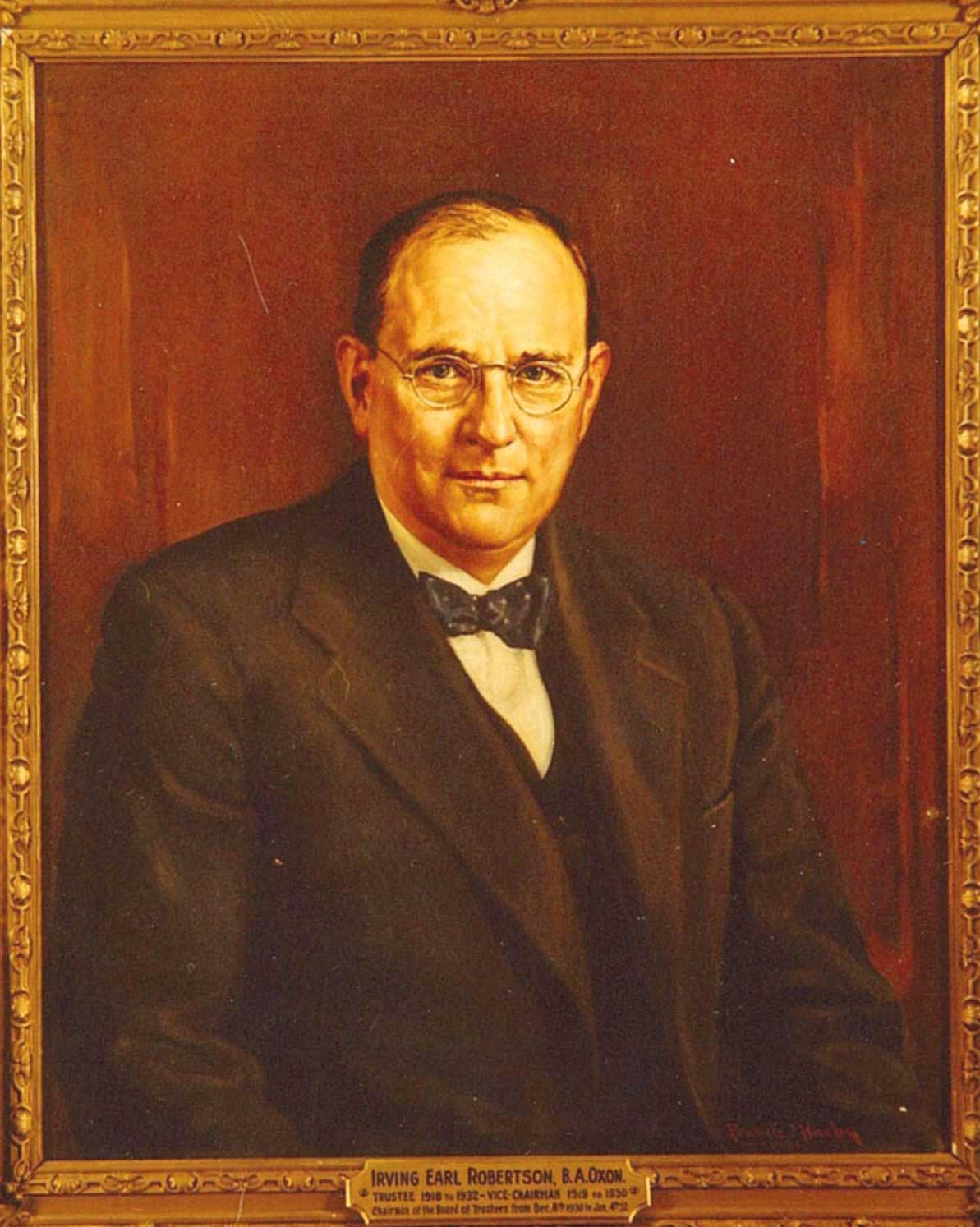10 : The premature death of Irving Robertson
Irving suffered periodic spells of ill health from as early as 1898 (aged 16 years), possibly earlier.1
Two nurses were employed to care for him at home in 1913. On 26 February 1916 he enlisted with the 170th
Battalion, Canadian Expeditionary Force, having passed the Army medical exam. He had the rank of Lieutenant.
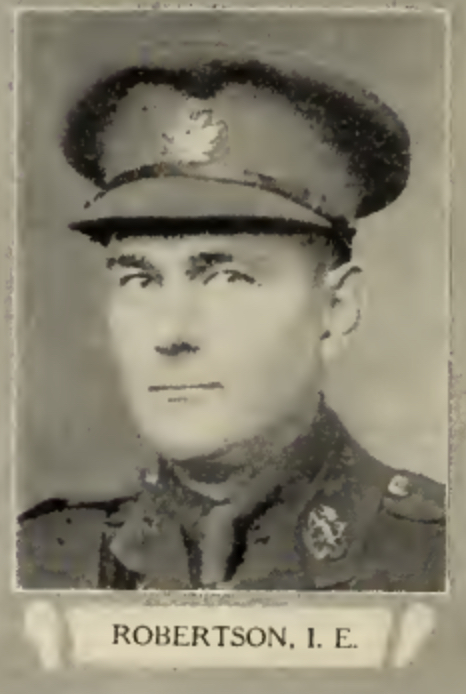
photograph courtesy Joan McCordick
However, during his training an illness occurred which required an immediate operation. He was discharged
from the CEF on 15 August 1916 and required a long convalescence.2
In the years that followed, he had a number of episodes of ill health but once recovered, he brought energy
and success to all that he was involved in.
As already mentioned it was during one of these spells of ill health, possibly as early as 1922, that Barbara
Mackenzie first nursed him.
Contributing to Irving's poor health was a propensity for alcohol abuse. It has been reported that, when
still single and living at 291 Sherbourne St, he went to unusual lengths to acquire supplies of alcohol
without his stepmother Jessie's knowledge. On at least one occasion his cover was blown when Jessie spotted
supplies of alcohol, being hoisted by rope to his room, as they passed by the kitchen window. He is said to
have arrived for his wedding to Barbara well fortified, and continued to indulge to excess at the reception.
He was, allegedly, banished from the first night marital bed because of his intoxicated state.3
He was said to have developed cirrhosis of the liver, and November 1931 he suffered a gastrointestinal
haemorrhage (probably from bleeding oesophageal varices) requiring blood transfusion. About six weeks later,
on 4 January 1932 he died of renal and cardiac insufficiency.4
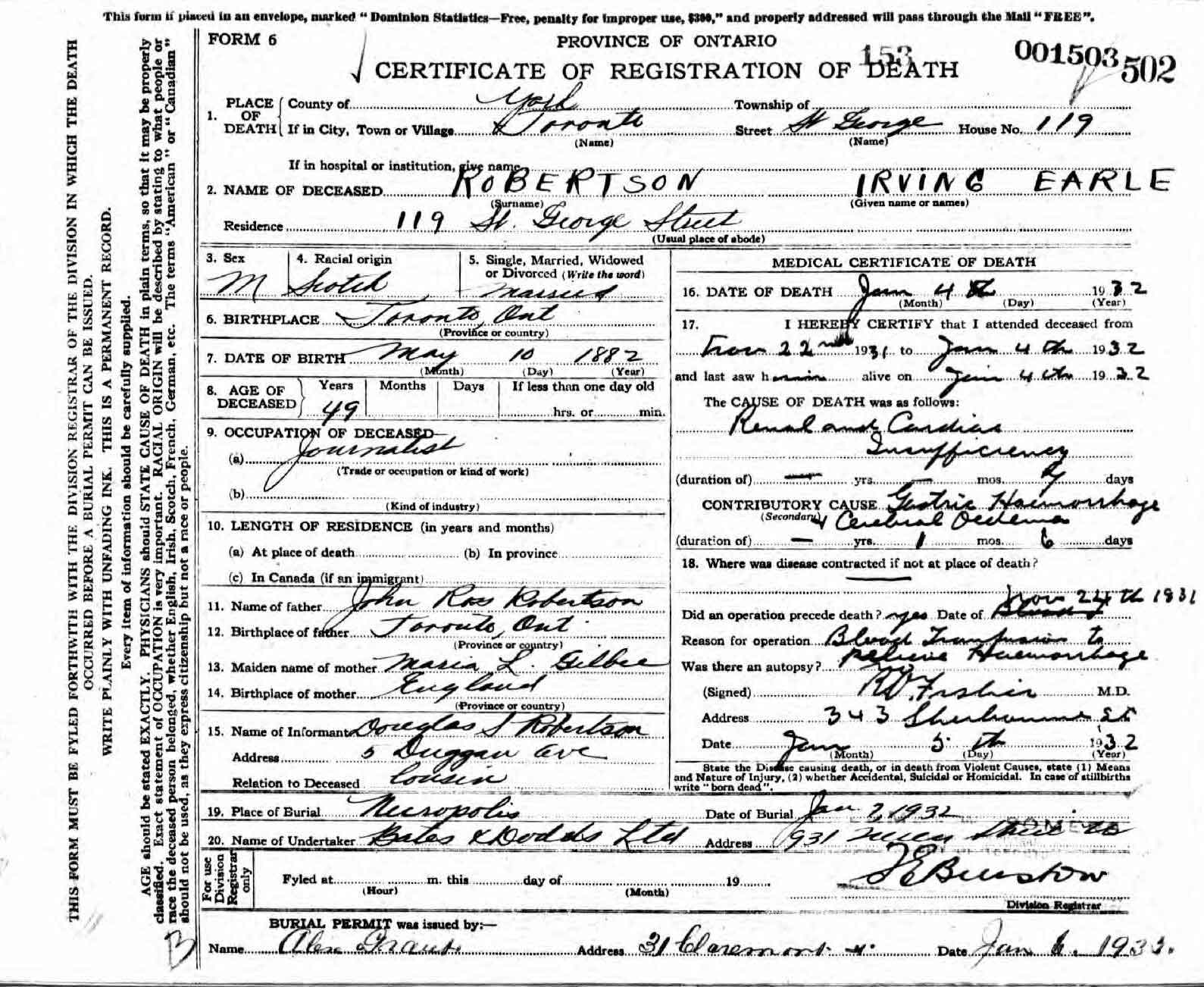
Reproduced below are cuttings from The Telegram written by a "Staff Writer" immediately after his death. It is hard to escape Irving's exceptional qualities.

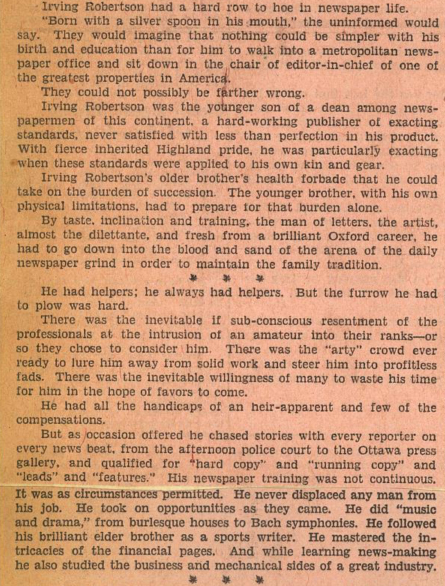

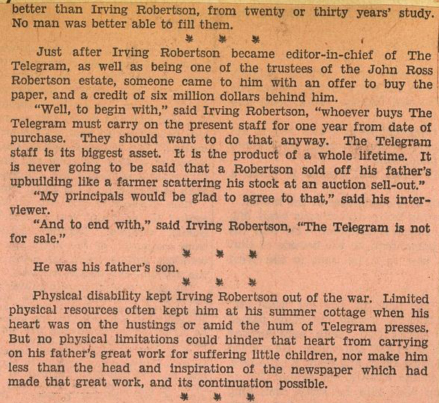
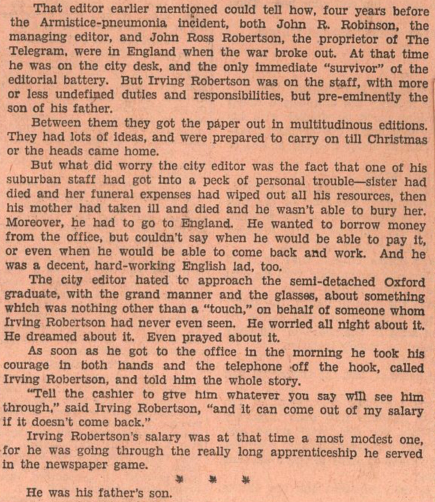 Clearly the un-named author of the above was a fan and I am inclined to give credit to all that is written
Clearly the un-named author of the above was a fan and I am inclined to give credit to all that is written
He comments "Physical disability kept Irving Robertson out of the war." This is not a typical euphemism
for alcoholism. I have already referred to the fact that an acute illness requiring an operation was a key
factor in Irving's discharge from the Canadian Expeditionary Force in 1916. Irving's father J Ross Robertson
received the following letter from Lieutenant Colonel Reid which is regrettably vague regarding the nature of
Irving's health.
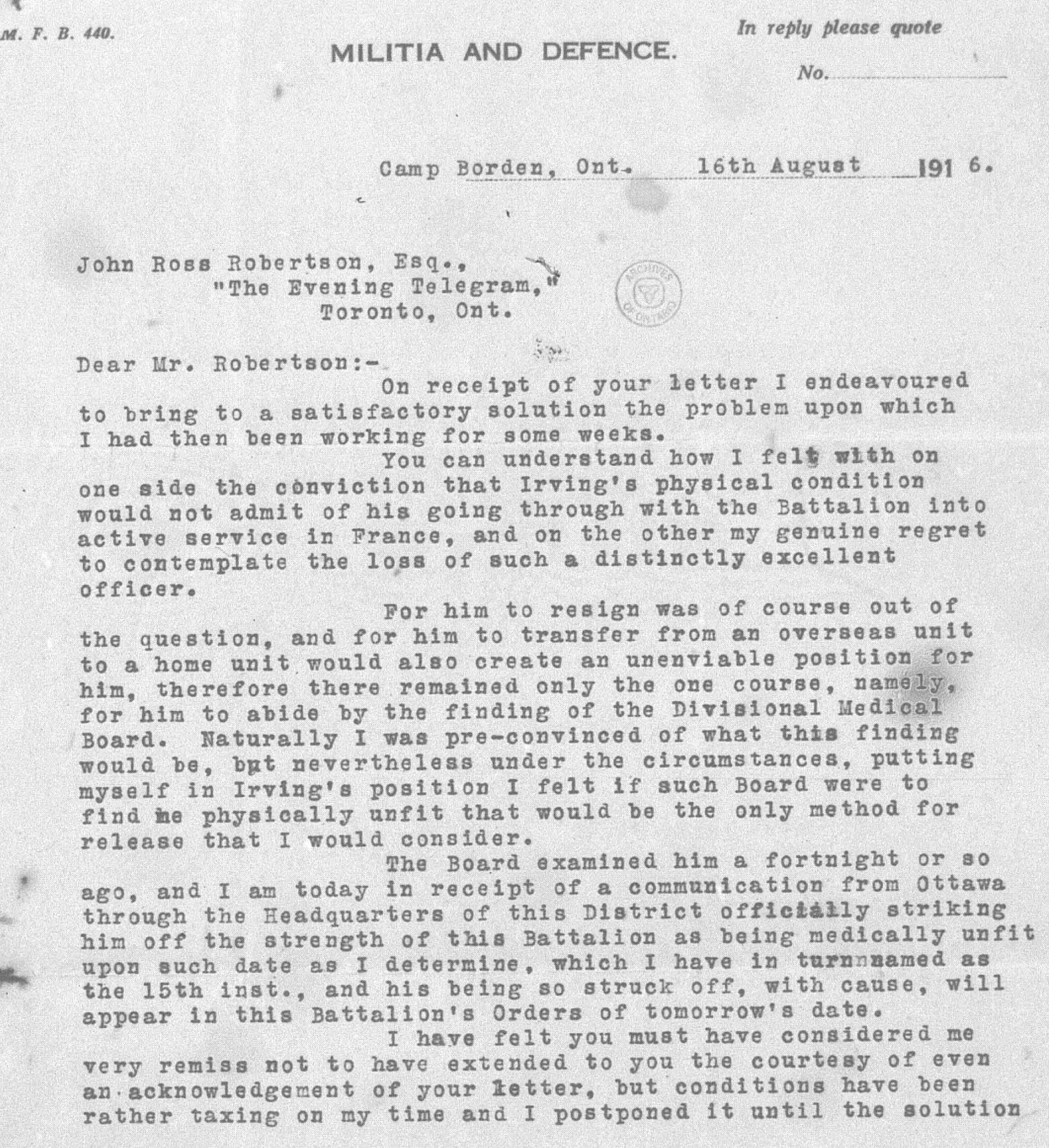

The comments made about Irving in Ron Poulton's book are particularly uncomplimentary and in regard to The
Telegram do not correlate with the obituary writer's view.
"One editor, who later became a trustee, described Irving as "an insignificant
newspaper man.'
He believed:
"John Ross Robertson's sons must have been a disappointment to him although he never said so.
Cully had his points, but he was just a playboy. Irving was neither liked nor admired. He did not have
much to do with the running of the newspaper....It was not that Irving was unintelligent. But he was
negligent and often without guile, and he lacked an incentive to use his gifts. Some masochistic streak
bedeviled him..."5
Barbara Lovatt recalls:
Aunt Barbara never even hinted that my uncle drank, but maybe she kept it to herself.
I think it would have been very painful for her to acknowledge it, especially as she was so fond of him and
cherished his memory. My mother never spoke negatively about her brother-in-law.
In fact, as a family, we were all very proud of both Barbara and Irving. We can only speculate.
After the 1916 operation and after Irving was discharged from the CEF, he spent a lot of time convalescing
at his summer cottage Auldearn, at Jackson's Point. In the years that followed recurrent episodes of ill
health occurred and were referred to by one commentator as "crises".
Whilst it seems clear that chronic alcohol abuse was a factor in Irving's poor health, there seems to me
that other health issue(s) contributed. The illness alluded to in the letter to his cousin Kathleen when he
was 16 (see earlier), the intermittent crises on other occasions, and the unexplained illness in 1916
requiring surgery suggested to me the possibility of intermittent acute porphyria as an explanation. This rare
condition can present with random episodes of severe abdominal pain. Interestingly, this same thought occurred
independently to addiction specialist Dr Geoffrey Robinson after he had studied the accumulated material.
Perhaps the 1916 operation was an exploratory laparotomy, and if the above thesis is correct, the surgeon
would have not found an explanation for the pain. It is well recognised that alcohol excess may precipitate
porphyria crises.
After Irving died, the Hospital for Sick Children commissioned a portrait of the late chairman of the Board
of Trustees, and this hangs at HSC to this day.
